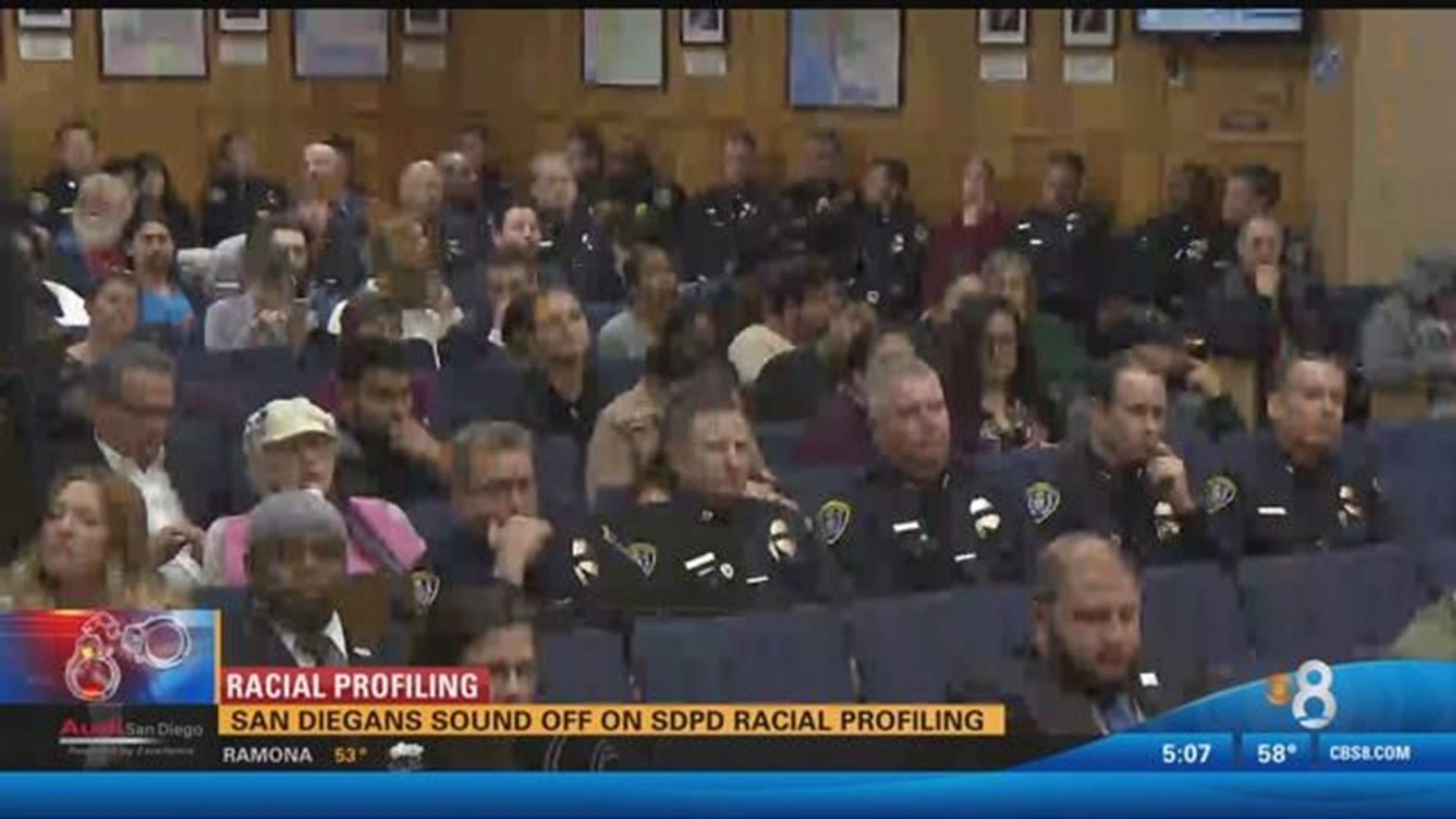SAN DIEGO (CNS) - It remains unclear how the city of San Diego will implement a state mandate to collect and compile data on traffic stops in an effort to combat racial profiling, police Chief Shelley Zimmerman said Monday.
In presenting a racial profiling study to the City Council, Zimmerman said state authorities have yet to issue regulations associated with AB 953, by Assemblywoman Shirley Weber, D-San Diego. The bill was passed by the Legislature two years ago and signed into law by Gov. Jerry Brown.
Draft regulations were issued in December, but have not been finalized, the chief said.
It's also unclear whether the state will provide computer infrastructure that local jurisdictions could use to compile the data, Zimmerman said. She said the SDPD is working with city information technology staff and prospective vendors in case they have to develop their own system.
"Having (the state Department of Justice) provide a uniform method of data collection across all agencies within the state would be helpful, but there is no guarantee that this will materialize," Zimmerman said.
The SDPD doesn't currently have an application that includes all the elements included in the draft regulations, she said.
Besides the cost of the application, the city will face extra personnel costs, since each card associated with data collection will take about 5 to 10 minutes to fill out, according to the chief.
"We know, based on our field interviews and vehicle stops during the past three years, there will be more than 212,000 stops per year just for these categories ( of stops in the state law)," Zimmerman said.
"Using the conservative estimate of five minutes per stop, data collection will result in over 17,000 hours per year of out-of-service time (for officers), or an average of 49 hours per day -- citywide," the chief said. The figure doesn't include many additional types of contacts, nor the time needed by supervisors to review the data.
She said that will reduce an officer's available time to respond to calls and conduct proactive community policing, or require increased overtime -- likely a combination of those.
The racial profiling study by San Diego State University analyzed the SDPD's own data cards filled out by officers that encompassed tens of thousands of traffic stops in 2014 and 2015. They showed a general trend of racial disparities, leading some members of the public to say at a November committee hearing that it proved what they've been living through.
Among the findings:
-- black and Hispanic drivers citywide were more likely than white drivers to be searched following a traffic stop, but whites were more often found with contraband;
-- black, Hispanic and Asian/Pacific Islander drivers were subject to field interviews at greater rates than white drivers;
-- white drivers were more likely to be pulled over in neighborhoods south of Interstate 8 during daylight hours, when officers could see the person's race; and
-- no meaningful difference existed in the rate at which drivers from each racial or ethnic group were arrested.
The study was limited to stops made for traffic violations, not for drivers who met suspect descriptions, or code enforcement actions.
Among the recommendations were acknowledging the existence of racial and ethnic disparities, enhancing training in the area of bias, replacing data cards with an improved record-keeping system, and making community engagement a core value.
Zimmerman said the SDPD has acknowledged the disparities and is already strengthening training in community policing, neutrality and respect for the public in academies, field training and ongoing training throughout an officer's career.
The council accepted the report, and a recommendation for the Public Safety and Livable Neighborhoods Committee to receive annual updates, on a 6-2 vote. Other suggestions in the SDSU study will be taken up by a newly revived advisory board on police-community relations.
Council members David Alvarez and Georgette Gomez dissented. Alvarez said they were wasting people's time by not adopting concrete recommendations.

